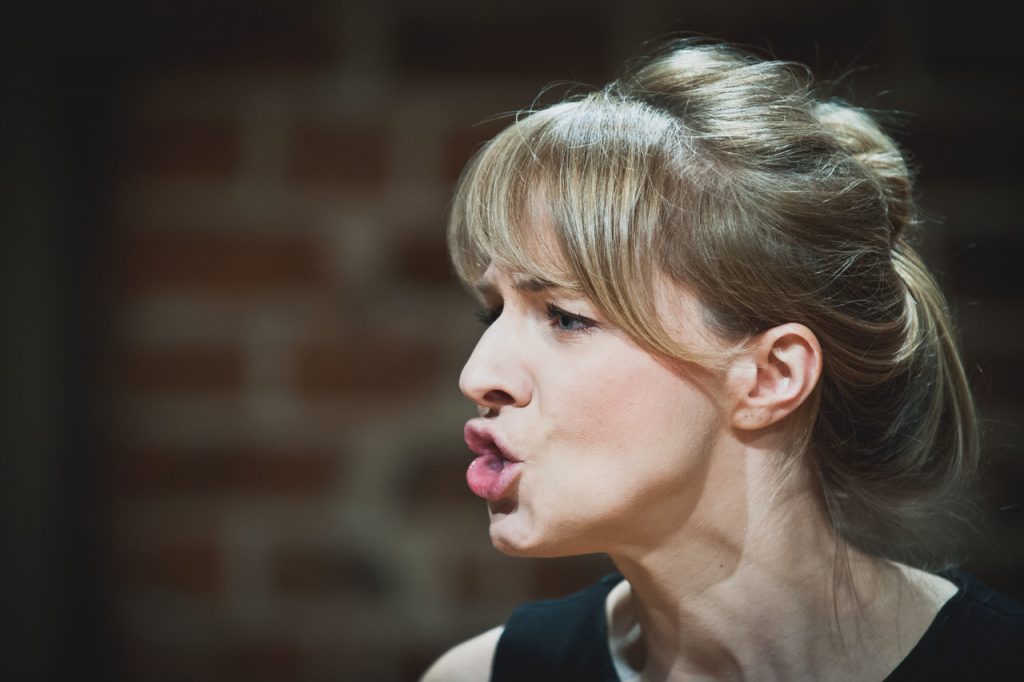Paul Allain, Professor of Theatre and Performance and Dean of the Graduate School, Stacie Lee Bennett-Worth, PhD candidate at De Monfort University and Honorary Research Associate at Kent, Alicja Bral, PhD candidate at Kent, and Dr Roanna Mitchell, Lecturer in Drama and Theatre are organising a practice-based symposium titled ‘Words In, Of and For Performer Training’. This is with the support of Professor Esa Kirkkopelto (University of the Arts, Helsinki) and Professor Cecilia Lagerström (Academy of Music and Drama, University of Gothenburg). The symposium is the 7th edition of the International Platform for Performer Training (IPPT), and will be hosted by the School of Arts, University of Kent from Thursday 9 to Sunday 12 January 2020.
The event call out reads as follows:
In the Bible, words came first. In performance practice, words probably followed movement, dance, art and sounds. Who knows….? Exploring what comes next, this seventh edition of the IPPT will investigate how words function in, of and for Performer Training across three broad areas:
- how the denotative or nonsemantic properties of words in performance are explored through training, and how movement, voice and text can be combined to achieve an integrated mise-en-scène (or not)
- how trainers use words in training practice, in order to exhort, encourage, clarify or instruct as well as what they do and don’t say, to whom and when;
- how words that are written about training, be it our own practices today or that of others past or present, might document or act as inspiration for practice.
The United Kingdom is well known for its excellent vocal and textual training and the quality of its playwrighting. Our ‘text-based’ theatre, however awkward such a categorisation, arguably is the envy of the world. What is much less developed are understandings and examples of how to integrate voice and text with movement, music and other performance practices, across all forms, from circus through dance to Live Art. In some ways, Physical Theatre evolved in the 1980s as an antidote to such textual supremacy and it is still widely celebrated in the UK. But how often do we admire performers’ physical ability whilst perhaps lamenting the dramaturgy, the vocal delivery or the way these things combine?
We still need to develop more productive ways and deeper insights into how words might support, challenge, reinforce or otherwise work against other aspects of a performance. What role can words play in the total mise-en-scène, how might they be spoken or sung, and how, through training, can they earn their place? How can we move on from any hierarchical or segregated positioning of words in, of and for performer training, giving them their full force and value? More pragmatically, in a country that has such strong traditions of performer training and its study across companies, conservatoires and universities as well as the pioneering development of practice as research, we will look also at how words operate in and after training, as a vital part of the process but also in terms of legacy and forward momentum and energy.
The event will combine workshops, presentations, talks (which might use words, silence, discussions, conversations and perhaps non-semantic sounds) in order to discover how words operate as functions in, of and for performer training.
The platform will work closely with the Theatre Dance and Performance Training journal blog to document and disseminate the event – through words and other means.
The organisers welcome proposals for workshops, demonstrations or presentations in a range of formats but will prioritise those involving or foregrounding practice. The time frame will be either 40 or 60 minutes including discussion. Proposals should consist of:
- Name and any affiliation plus short biographical note (150 words max)
- Abstract and information on ideal mode of presentation (500 words max)
- Technical requirements (AV, type and size of space, special props, etc.)
Proposals will be selected for their fit to the platform’s aims, as well as the clarity and feasibility of the proposed investigation. The deadline for proposals is Saturday 21 September 2019, by 5pm. Applicants will be notified of a decision by the end of October at the latest. Please email submissions to: IPPT@kent.ac.uk
There are no costs for participation or attendance and attendees are expected to cover their own travel and accommodation. The welcome dinner and coffees/teas etc will be provided by Kent gratis. Participants are expected to attend all the platform. Please note that places are limited.

